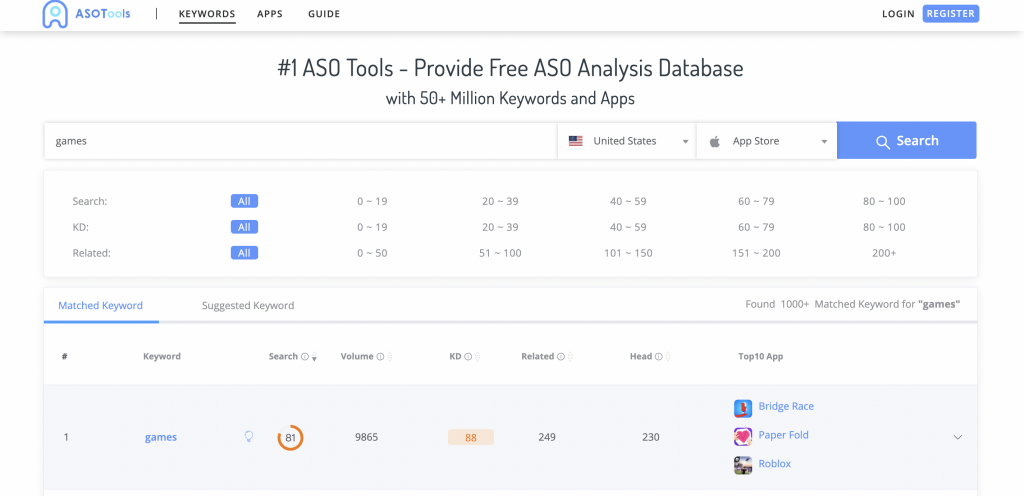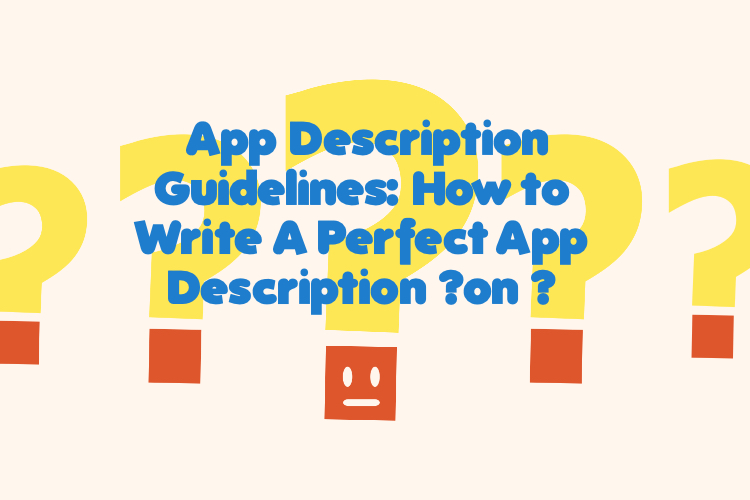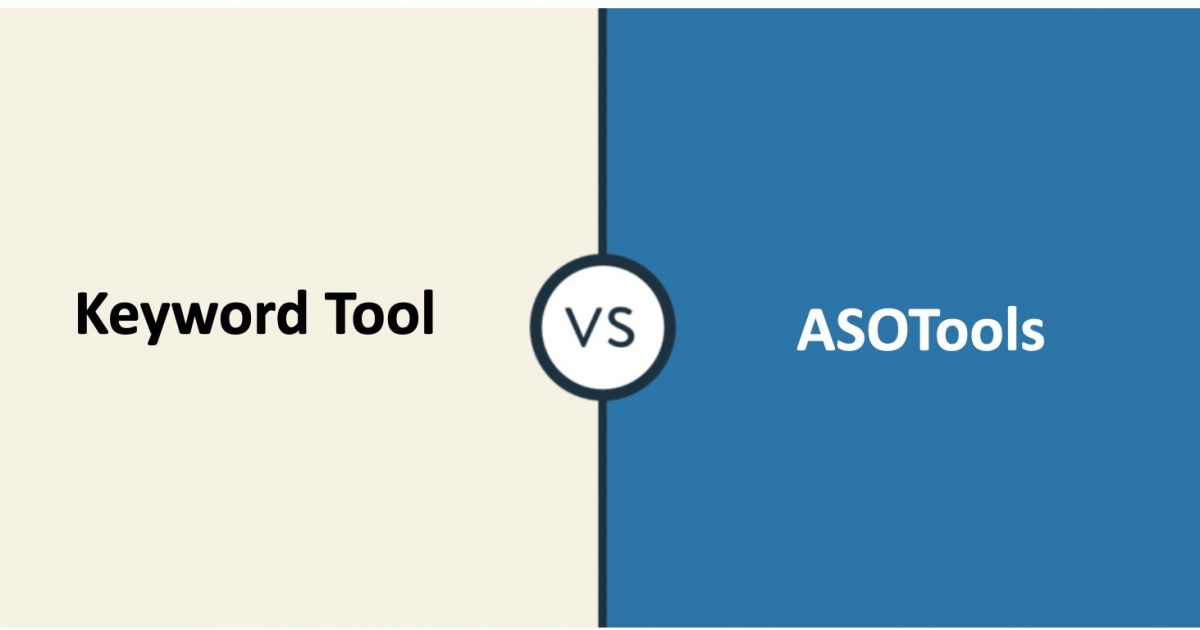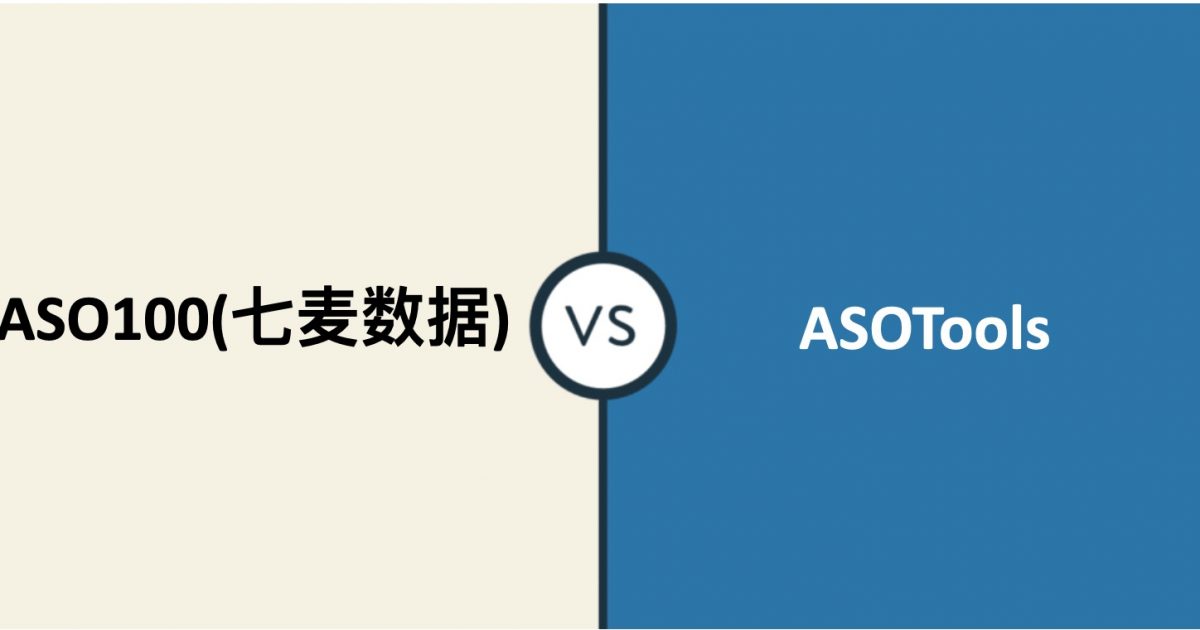ASOTools——How to Do Keyword Monitoring for ASO? Best ASO Tools for You
About 67% of app downloads come from organic app store search. This means people tend to search for a specific app using some generic search terms in the app store. Every newcomer to ASO knows that optimizing keyword strategies is very important for ASO.
However, keyword optimization is a challenge. How do keywords play a role in ASO? How do you do keyword optimization and what are the available keyword monitoring tools?
Eight marketing experts shared their insights on these issues with us.
Francesca Nicasio——Content Marketer at Payment Depot
As a content marketer for a B2B ecommerce company that does payment processing, keywords and optimization are things that I deal with all the time.
When it comes to ASO, keywords are important because they help you to show up on people’s screens when they search for an app like yours. To do keyword optimization, start by creating a list of words that are relevant to your app. What does it do? How does it help people? What words would you search for if you were looking for an app like yours?
You can also use tools like Google Keyword Planner or a thesaurus to help. You’ll also want to see what keywords your competition is using with online tools like App Annie or Sensor Tower. The next step is to narrow down your list using the criteria of relevance, how hard it’ll be to rank for the word, and how many searches a keyword is getting.
Once you have the best keywords all that’s left to do is to decide where to implement them when you update or launch your app. You’ll also want to monitor which keywords your app is ranking for. Keep in mind that while ASO can help it shouldn’t be your only or even primary form of marketing if you want it to be successful.
Fay——Head of Marketing at Ourpcb PTY LTD
Keywords play an excellent role in determining your app rank in the app store. They are the main reason for your app to be found in the application stores.
Here are the top tips that I suggest for ASO keyword research
- Rather than researching new keyword opportunities, just try to evaluate your app's current ranked keywords. Now analyze their performance, this will help you in prioritizing your keyword research.
- Next, discover top-ranked keywords from your competitor app to get new ideas..
- Target low-ranked keywords to which your competitors are not ranking, and identify valuable gaps.
- Explore user reviews to understand how your users are defining your app.
- Put your main focus on the keywords that specify the app's functionality.
Keyword optimization strategy
1. Make research for relevant keywords.
2. Study the app store’s search behavior.
3. You may find two kinds of keywords i.e., popular and competitive. Try to make the right balance between them.
4. Pick up the keywords correct lyand wisely for the Application store.
5. Examine and learn which keywords would work well and which would not.
In addition, Fay has given us several available tools, such as AppFollow, Mobile Action, CodeNgo, SearchMan, Keyword tool, Meatti and AppRankCorner. But most of these tools have to be paid to use, you can also use the free ASO data analysis tool ——ASOTools.

Christian Velitchkov——Co-Founder at Twiz LLC
How do keywords play a role in ASO?
The focal point of ASO is the master resource application identified with improving the positioning of portable (applications) straightforwardly inside application stores (like iTunes, Google Play, and Windows Store). The principal cell phones that applications are made for iPhone/iPad, Android, and Windows Phone.
How do you do keyword optimization and what are the available keyword monitoring tools?
Application stores are, in actuality, a shut site web index, which thusly depends on:
- Simple content (application content) revelation
- Indexation
- Additionally, application positioning calculations attached to:
- Seen application quality
- Newness
- Brand scale
- Client esteem signals (e.g., surveys, evaluations, commitment)
Ashleigh Saunders——Outreach Specialist at Art of War SEO
For apps to rank for particularsearch queries the correct keywords must be used. Ultimately, keywords from anapp’s title and/or subtitle are what help it rank. App store algorithms use thesekeywords to suggest an app as a solution to a search query. Thus, the main roleof keywords in ASO is to help apps rank higher or first.
To fully optimize yourkeywords in ASO it is suggested that elaborate keyword research is conducted asa starting point. Customers utilize keywords to search for apps making it vitalto use the most relevant keywords possible. Search behavior is also a keyfactor to analyze. Search behavior on an app store is different than it wouldbe online. Online, people search for phrases or various keywords, on an appstore, people search names and/or functions they are looking for in an app. Consider this when determining the keywords. Ensure the keywords chosen are balanced interms of relevancy, competition, and search volume. Long-tail keywords may be more effective as competition decreases and the chance that your app will be downloaded increases. You can also always pay for your app to appear first inthe app store.
Available tools to use include SeedKeywords.com, AppAnnie, SearchMan, Keywordtool.io, CodeNgo, AppFollow,Thetool.io, Mobileaction.io, and many more. Alternatively, users can always use the app store itself to find relevant keywords.
Caroline——Co-founder of CocoSign
You know that keywords play a major role in ASO (App Store Optimization). They are how your app is discovered in the app stores and plan your ranking in search results. Keywords tell the search algorithm what your app is about and in which app store explores your app should be placed.
Here are some tips to optimize your app store optimization keyword strategy:
- Research Relevant Keywords.
- Consider App Store Search Behaviour.
- Find the right balance between Keyword Popularity and Competition.
- Choose Your Keywords Wisely for the App Store.
- Discover which keywords work great and which do not
Avinash Chandra——Founder and CEO of Brandloom
"As we know, keywords play an important role in app store optimization. The app store algorithm scans the keywords we use. This way, the app store knows what our app is all about, and these keywords will help us connect with users easily.
The keywords optimization process is key to ranking your app at the top of the user's search list. It would help if you did extensive keyword research to find out relevant keywords. Your next step should be to narrow down the keywords list by choosing keywords you think will describe your app best. Try to select keywords with high relevance and less competition.
Once you have the final list of keywords, use them in the description, title, and keyword section. Track your keyword performance and eliminate keywords that are not working for you. Google Search console is a wonderful tool for keyword monitoring because it provides you with accurate data. Semrush and Ahrefs are a great alternative to Google search console for keyword monitoring.”
Nathan Sebastian——Content Developer and Marketer with GoodFirms
Metadata Optimization - Understand your app and use keywords wisely
In addition to creating a brand's identity for the app, the title and subtitle also work as valuable sources of metadata, which must be utilized for keyword visibility and conversions even today.
Imagine you have created a parental control app named 'SafeKids.' Now, by keeping only this as a title on the app store, you'd miss the opportunity to gain more keywords. It would be better to describe the app's purpose by calling it 'SafeKids - Parental Control App' or 'Manage Children's Screen Time With SafeKids.' Then use subtitles to describe more features, such as 'Customize your child's home screen' or 'Child GPS Tracker.'
This way, by targeting relevant keywords in the app's metadata, you enable Apple or Google to index your app for those terms and the combinations. As you provide valuable and relevant context about the app, you can increase clicks and conversions, too.
The App Description is also another crucial part of your app's metadata that provides information about your app and gives an overview of its prominent features. Google takes into account the keywords in the description. It must be easy to understand, well-structured, up to 4000 characters long, and keywords must be naturally incorporated. Though Apple does not index keywords from your iOS app description, you need to use it as an opportunity to show people the benefits and value of your app.
Ashish Goswami——Digital Marketing Manager of 21Twelve Interactive
How do keywords play a role in ASO?
Keywords play a major role in ASO. Nearby 70% of app store visitors use search to find new apps, and over 65% of apps are downloaded directly after a search in the store (including branded searches). Suppose your app is properly optimized with a keyword. In that case, the chances are that in a relevant search term, your app will appear when someone searches relevant to your app in the app store if our app ranking higher in search results will lead to exposure to more potential customers, which results in more traffic and, ultimately, downloads by users.
How do you do keyword optimization, and what are the available keyword monitoring tools?
Keyword optimization is not an easy task. You will need to identify long-tail keywords with enough search volume and the lowest keyword difficulty. Once you get the set of keywords, then you will need to add them in your app title (app name + keyword), app description (contextually, and if you’re adding any images or screenshot, then it would be great if you add a keyword as an image alt text. For keyword monitoring or keyword research, you can go with multiple tools like Ahrefs, Keyword I.O, Uber Suggest, etc. But Ahrefs is one of my all-time favorite tools.
All in all, keywords are very important in ASO, and it is related to the ranking of the app in the app store. When you do keyword optimization, you can get new ideas from the keywords used by your competitors. Try to find a balance between relevance and competitiveness, and choose keywords with high relevance and low difficulty. Use tools when you find it more difficult to do it alone. ASOTools, a free ASO keyword analysis tool, is a very good choice.





